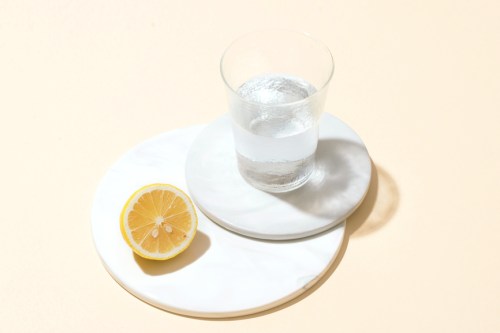The urinary system has a lot on its plate. It’s essential for filtering toxins, waste, and excess nutrients out of the blood—while keeping a careful watch on the balance of certain things like salinity, acidity, and water in the body, according to the Mayo Clinic. A common, but super painful, threat to the urinary system’s work is the formation of kidney stones. Sometimes people don’t have a lot of control over the development of these hard mineral deposits in their urinary system, but there are some strategies that experts recommending incorporating in order to keep these stones at bay.
For example, hydration is a major factor that prevents—or causes—kidney stones, according to according to Samit Soni, MD, a chief urological surgeon at Memorial Hermann in Houston. Chronic dehydration is a common risk factor for developing kidney stones because your body needs the appropriate amount of water to filter out kidney stone-causing waste and toxins. Another example of prevention is related to the foods that you consume. Higher sodium diets or oxalic acid diets can contribute to stone formation—but only in some circumstances, says Dr. Soni.
This is where the individual health history of a person is important in determining a strategy for preventing kidney stones. Some people, according to Dr. Soni, can benefit from eating more citric acid because of the type of stones they typically develop. In this instance, Dr. Soni often recommends that people drink lemon water or find ways to incorporate citric acid into their diet. You heard that right: Lemon water could have that big of an impact on your bladder health. Don’t worry, we broke down exactly why this helps—because it’s not a one-size-fits-all tip.
What are kidney stones?
Kidney stones are mineral deposits that can build up in the kidneys over time. It’s only recently that modern medicine has understood what causes these deposits and how to prevent them, says Dr. Soni. This distinction is important when it comes to conversations about preventing kidney stones. Why? Because everyone’s health history is different and so their bladder health strategies need to be tailored to their health history, family history, environment, diet, and any overlapping medical concerns.
Your best bet is to be as informed as possible about your health and your family’s health history, which will help you determine your kidney stone prevention steps. According to Kidney.org, there are four different kinds of kidney stones: calcium oxalate, uric acid, struvite, and cystine. Each kind of stone requires different dietary and lifestyle change considerations. One such example is Dr. Soni’s recommendation of consuming lemon water or higher levels of citric acid for calcium-based kidney stones.
What prevents kidney stones?
“Dietary citrate levels are an important factor in anyone with a history of calcium-based kidney stones, which are by far the most common types of kidney stones,” says Dr. Soni. When someone has a known history of this or family history, he often recommends adding lemon water or other sources of citric acid to their diet.
According to Dr. Soni, urine citrate binds to urine calcium, which creates a separate molecule that your body can better excrete by peeing it out. This means that less of the kidney-stone-forming material is roaming free in the kidneys. Additionally, he says that citric acid, or citrate, also inhibits crystal formation, growth, and aggregation.
“Citric acid, or citrate, serves as an inhibitor of kidney stone formation and therefore plays an important role in kidney stone prevention,” says Dr. Soni. “While many people inherently absorb and excrete enough citrate in their urine, a sizable portion of kidney stone formers do not.”
Therefore, he says, if citrate levels in the urine are too low, treatment involves increasing dietary citrate intake through more lemons, oranges, grapefruits, and other citrus fruits. (Citrate, or citric acid, is only rarely recommended to be supplemented in extremely low-level cases.) Though this is great news for citrus lovers everywhere, it is still not universal advice. As for me, though, I will add a little extra Tajín (it’s high in citric acid) to my next serving of avocado toast and hope for the best.
Sign Up for Our Daily Newsletter
Get all the latest in wellness, trends, food, fitness, beauty, and more delivered right to your inbox.
Got it, you've been added to our email list.











